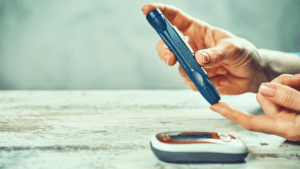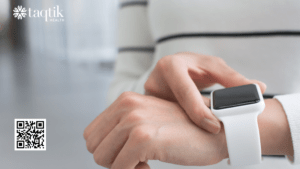
Remote Monitoring For Bariatric Patients
Remote Monitoring For Bariatric Patients
Using remote monitoring for bariatric patients can be a very useful way to reduce hospitalizations and length of stay. Remote monitoring for bariatric patients can also help bariatric patients adjust to a new way of life, and it can help physicians identify health problems early.
Long-Term Weight Loss
Performing bariatric surgery is an effective treatment for obese patients, but the long-term impact is unclear. In fact, there is evidence to suggest that up to 30 percent of bariatric patients are likely to regain some of their lost weight. This may obstruct the health benefits of the operation.
A sleeve gastrectomy, in particular, has garnered a lot of praise for its potential to improve a patient's health. This is in part due to its efficacy in reducing hepatic and visceral adipose tissue, a known contributor to insulin resistance. However, the weight loss associated with the procedure is often minimal, and the benefits of bariatric surgery are limited to a few select patients.
A better way to determine the actual weight loss achieved by a bariatric procedure is to perform a prospective observational study over an extended period of time. This may be best achieved by performing the surgery in an inpatient setting, where the patient is monitored closely for the duration of their stay.
Continuous remote early warning score
Using wearable devices to monitor vital signs is a potential solution to detect early deterioration in patients. It may prevent conditions such as sepsis. It could also reduce the cost of hospital care. Detecting the onset of cardiovascular deterioration could prevent cardiac arrest. In addition, it could help improve patient satisfaction.
Wearable devices can measure vital signs and send information to the console, Physician, or EMR system. These devices also feature automated early warning alerts when thresholds have been met or exceeded that prompt clinician with specific response actions based on the patient score.
Reduces hospitalizations and length of stay
Using Remote Monitoring devices with remote or international bariatric patients can reduce hospitalizations and length of stay. These devices allow patients to share their vital signs with remote physicians from their homes. The benefits of using these devices are two-fold. They reduce healthcare costs and increase patient satisfaction.
Remote monitoring devices also allow patients to share their vital signs with their primary care providers. Practice staff can then follow up with patients via an electronic medical record inbox to assess their needs. These devices can also be used to detect postoperative complications.
The results of some studies suggest that remote monitoring devices can reduce hospitalizations and length of stay for bariatric patients. The results showed that patients that were monitored had shorter hospital stays and used less intensive care. In addition, there was a decrease in hospital readmissions and hospital-acquired infections.
The study was published in JAMA Network Open. The study evaluated the safety of outpatient bariatric surgery supplemented by a wireless remote monitoring system.
Helps bariatric patients navigate new ways of life
Using a remote monitoring system, bariatric patients can keep track of their vital signs in their home environment. This can be helpful for remote patients who may have a hard time coping with their weight loss. It can also help improve the management of hypertension. The American Heart Association supports the use of remote blood pressure monitors.
Bariatric patients with diabetes can benefit from the monitoring of blood glucose levels. Hyperglycemia is a common, asymptomatic condition, but it can be dangerous if it is left untreated. Using a remote monitoring device, doctors can ensure that patients are able to follow their weight-loss goals and achieve them safely.
RPM solutions are easy to use and offer better compliance rates than traditional monitors. Using guided automation software, patients can receive step-by-step instructions, automatic reminders, and electronic consult requests. This software also allows for insurance information and education about bariatric surgery. A number of RPM devices don't require configuration, so patients can start using the device as soon as they are delivered.






Leave a Comment
(0 Comments)